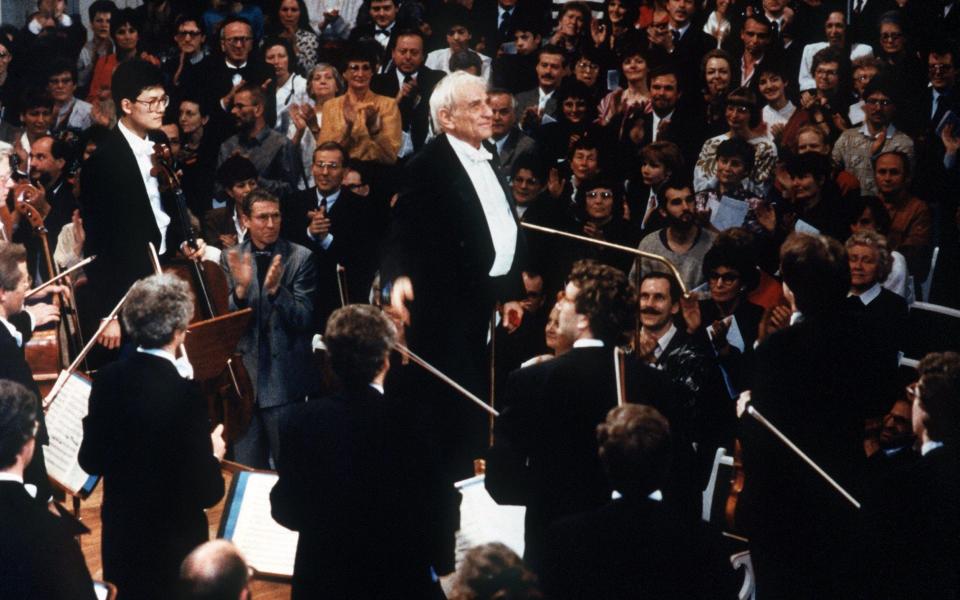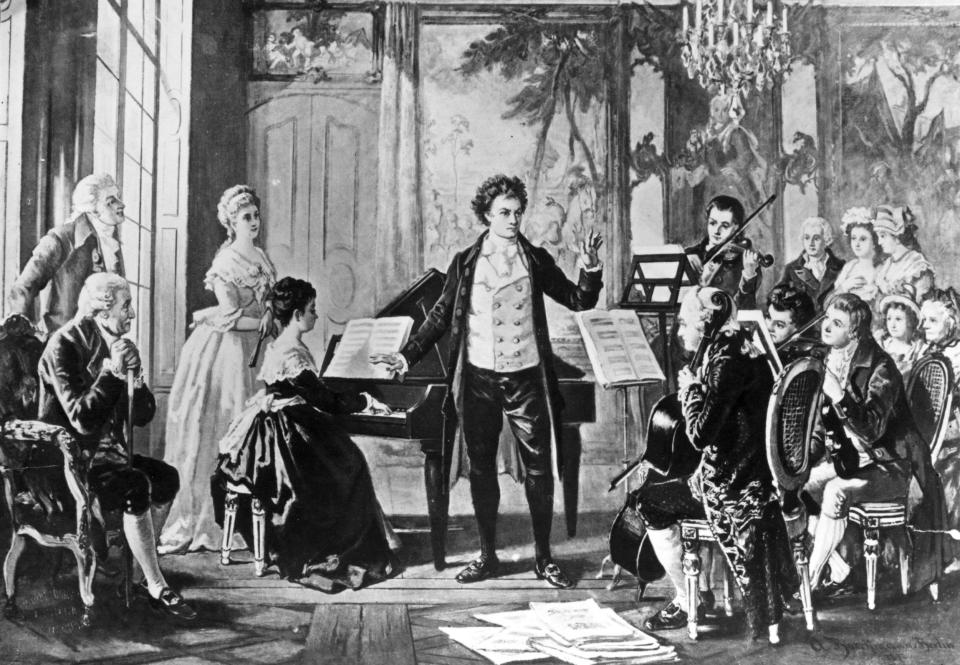There are few themes in classical music more famous than the ‘Ode to Joy’ setting in the final movement of Beethoven’s Ninth Symphony, the Chorus. The universal message of brotherhood – ‘All mankind will become brothers’ – has been adopted by social reformers, from Karl Marx, who revered this message, to Keir Starmer, who said it best summed up the Labor Party under his leadership.
The European Union chose it as its national anthem, and when the Berlin Wall fell in 1989, Leonard Bernstein conducted the Ninth in a united Berlin, alternating players from different orchestras between parts to emphasize the music’s universality, and Freiheit (“Freedom “) replaced. for Freude (“Joy”) in the last part. Beethoven would have nodded in affirmation.
The premiere of Beethoven’s Ninth took place on May 7, 1824. In many ways it is a miracle that he completed it – or that the first performance took place at all. To begin with, the words of Schiller that would make Beethoven so enduringly famous did not exist when the young philosophy student at the University of Bonn first discovered Schiller’s poem ‘An die Freude’ (Ode to Joy).
Originally the sentence that appealed to the young Beethoven was: Beggars will become the brothers of princes (Bettlers became Fürstenbrüder). But when Schiller revised his collected poems in 1803 – Beethoven was now in Vienna working on his Third Symphony, the Eroica – he replaced that line with ‘All humanity will become brothers’ (Alle Menschen become Brüder), which was in accordance with Beethoven’s personal faith even closer.
For twenty years or more, Beethoven carried Schiller’s poems with him, determined to one day set “Ode to Joy” to music. But how? The decision to include it, sung by soloists and choir, in the final movement of a symphony did not occur to him until late in the day. He knew what a radical departure this would be. No composer had ever included words, spoken or sung, in a symphony. It wouldn’t be the first time that Beethoven changed the rules.

After a year of intensive work, the new symphony was completed in early 1824, shortly after Beethoven turned 53. Now the problems really started. Where will the first performance take place? That was easy. Theater managers were eager to offer their establishment as this would be Beethoven’s first symphony in over a decade and word of mouth already predicted something extraordinary. One by one offers were made; one by one Beethoven rejected them.
Then, in a remarkable act of revenge against the Vienna musical establishment he despised, Beethoven announced that he would hold the premiere in Berlin. Berlin? In desperation, no fewer than thirty illustrious names in music wrote an open letter to Beethoven “whose name and creations belong to all mankind… A new flower glows in the garland of your glorious, still unparalleled symphonies… Do not allow your latest descendants to be introduced to persons who you and your mind are strange! Appear soon among your friends, your admirers, your worshipers!”
Beethoven liked a little flattery, and that did the trick. But where in Vienna will the premiere take place? The Theater an der Wien, where he had premiered so many of his works, offered him the theater for free, but the manager had insulted Beethoven several years earlier, so he turned it down. In the end he chose the Theater am Kärntnertor – one of the theaters of the imperial court – and a date at the end of March.
Finally the rehearsals could start. Then the censor intervened. Beethoven planned to premiere his great setting of the Holy Mass, the Missa Solemnis, at the same concert. Impossible, said the censor. A religious work may not be performed in a commercial theater and he banned the concert. The arguments went back and forth. Ultimately a compromise was reached. Beethoven was only able to perform three movements of the Missa (Kyrie, Credo, Agnus Dei).


The concert went ahead again, but the new date – May 7, 1824 – was near the end of the season, and by then the aristocratic patrons who were expected to fill the hall would have left for their estates.
As if that wasn’t enough, Beethoven dropped a late bombshell. He insisted on conducting. The people around him knew that his deafness made this impossible. So they hired a professional, Michael Umlauf, “simply to act as your assistant, Herr Beethoven.” The orchestra was instructed to follow Umlauf’s beat, not Beethoven’s.
There was only time for two rehearsals, after which the four soloists all protested to Beethoven that their parts were unsingable. When Beethoven insisted that they sing exactly what he had written, the contralto, Caroline Unger, called Beethoven “a tyrant over all vocal cords.” The bass singer quit and was replaced by a choir member.
The stage was set for a disastrous performance in a sparsely filled hall – no emperor, no Archduke Rudolf, his greatest patron. Laughter greeted Beethoven’s entrance. He was wearing a green frock coat. Vegetable! Didn’t the man have a black frock coat? He didn’t.
Umlauf laughed even more as he made the sign of the cross over the orchestra. He coordinated his opening beat with Beethoven’s, and the audience heard the mysterious, veiled opening of Beethoven’s Choral Symphony. They may have been unaristocratic and unsophisticated, but the Viennese knew their music and they immediately recognized that they were hearing something groundbreaking.
The second part was so popular that they demanded an encore. When the bass singer shouted “O Freunde, nicht diese Töne!” sang at the beginning of the fourth, the audience held their breath. At the final jubilant finish they exploded, jumping up, cheering, waving hats and handkerchiefs and shouting ‘Beethoven! Beethoven! Beethoven!”
Beethoven still conducted the imaginary orchestra he heard in his head. Caroline Unger carefully turned him towards the audience. In that moment, Beethoven knew the gift he had given the world.
‘In Search of Beethoven’ by John Suchet will be published on October 17, 2024 by Elliott & Thompson